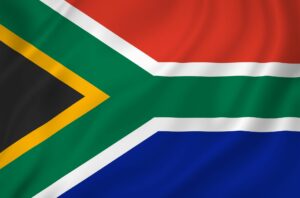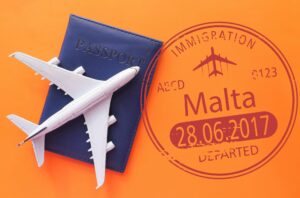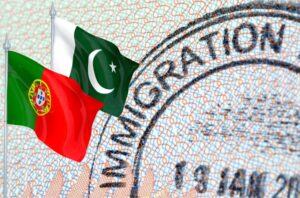In Citizenship by Investment programs, the Saint Kitts and Nevis vs. Dominica passport debate encapsulates two enticing options for global citizens seeking new opportunities. Both of these Caribbean nations tout their Citizenship by Investment (CBI) programs as gateways to enhanced mobility, financial perks, and a secure alternative home base. Saint Kitts and Nevis, the pioneer of CBI programs, offers a passport with extensive visa-free travel and attractive tax policies.
On the other hand, Dominica competes with a cost-effective program and its own travel benefits, including visa-free access to China. For the discerning investor, understanding the nuances of each program’s offerings, from investment criteria to family inclusion and global reputation, is crucial in making an informed decision that aligns with personal and business aspirations.
Introduction to Caribbean Citizenship by Investment
The Caribbean’s pristine beaches and lush tropical landscapes aren’t just for vacationers. You might be drawn to the region for its Citizenship by Investment (CBI) programs. These initiatives let you gain citizenship by making significant economic contributions to the host country, offering a range of benefits.
Overview of the Saint Kitts and Nevis Program
Saint Kitts and Nevis was the first to launch a CBI program in 1984, setting a standard for others in the region. It offers you and your family the chance to obtain full citizenship for life, which can be passed down to future generations.
Citizenship in Saint Kitts and Nevis comes with privileges in the UK and other Commonwealth countries. To qualify for citizenship, you must be over 18 and choose from various investment options, including the Sustainable Island State Contribution (SISC), Approved Public Benefit Project, or purchasing real estate.
The minimum investment requirements have increased recently. Donations now start at $250,000, and real estate investments at $400,000. You must hold the real estate for a period of seven years.
The Saint Kitts and Nevis passport is highly regarded and provides excellent global mobility. The government is always working to increase its visa waiver agreements. The application process is thorough, including background checks, biometric data collection, and an interview that can be conducted virtually or in person.
Saint Kitts and Nevis allows dual citizenship and doesn’t require a minimum stay. This flexibility, combined with the benefits of a second passport, makes it an attractive option for many.
Overview of the Dominica Program
Dominica launched its CBI program in 1993, offering a direct route to citizenship in return for economic contributions. The program is anchored in the nation’s Citizenship Act. Successful applicants can pass on their citizenship to their descendants without giving up their current nationality.
Dominica provides two investment routes: a non-refundable contribution to the Economic Development Fund or a real estate investment. The contribution starts at $100,000, while the minimum real estate investment is $200,000. You must maintain the properties for at least seven years.
Holders of a Dominican passport can travel to over 115 countries without a visa or obtain one upon arrival, including access to the EU and the UK. The Dominica Citizenship by Investment Unit (CBIU) oversees the application process, which ensures due diligence and integrity.
There are no language proficiency, age, business experience, or education requirements. Plus, there’s no mandatory interview. This accessibility makes the program attractive to a wide range of applicants.
Dominica emphasizes health and character checks to accept only individuals of the highest repute. The nation’s commitment to due diligence and confidentiality maintains the program’s esteemed reputation. The biometric e-passport, valid for ten years, reflects Dominica’s dedication to security and adherence to global standards.
Benefits of Caribbean Passports
Caribbean countries with passports from CBI programs, like those of Saint Kitts and Nevis and Dominica, come with numerous advantages. They offer greater travel freedom, with extensive visa-free or visa-on-arrival access to many countries. This is especially beneficial for business professionals and investors, as it reduces travel constraints and opens up international opportunities.
These programs can provide financial security and potential tax benefits, depending on your personal situation and your home country’s laws and residency requirements. The ability to pass citizenship on to future generations ensures lasting benefits for your family.
The Caribbean’s political stability and growing economies make it an appealing region for investment. Real estate acquired through these investment programs will not only qualify you for citizenship. Still, it can also be a profitable addition to your investment portfolio.
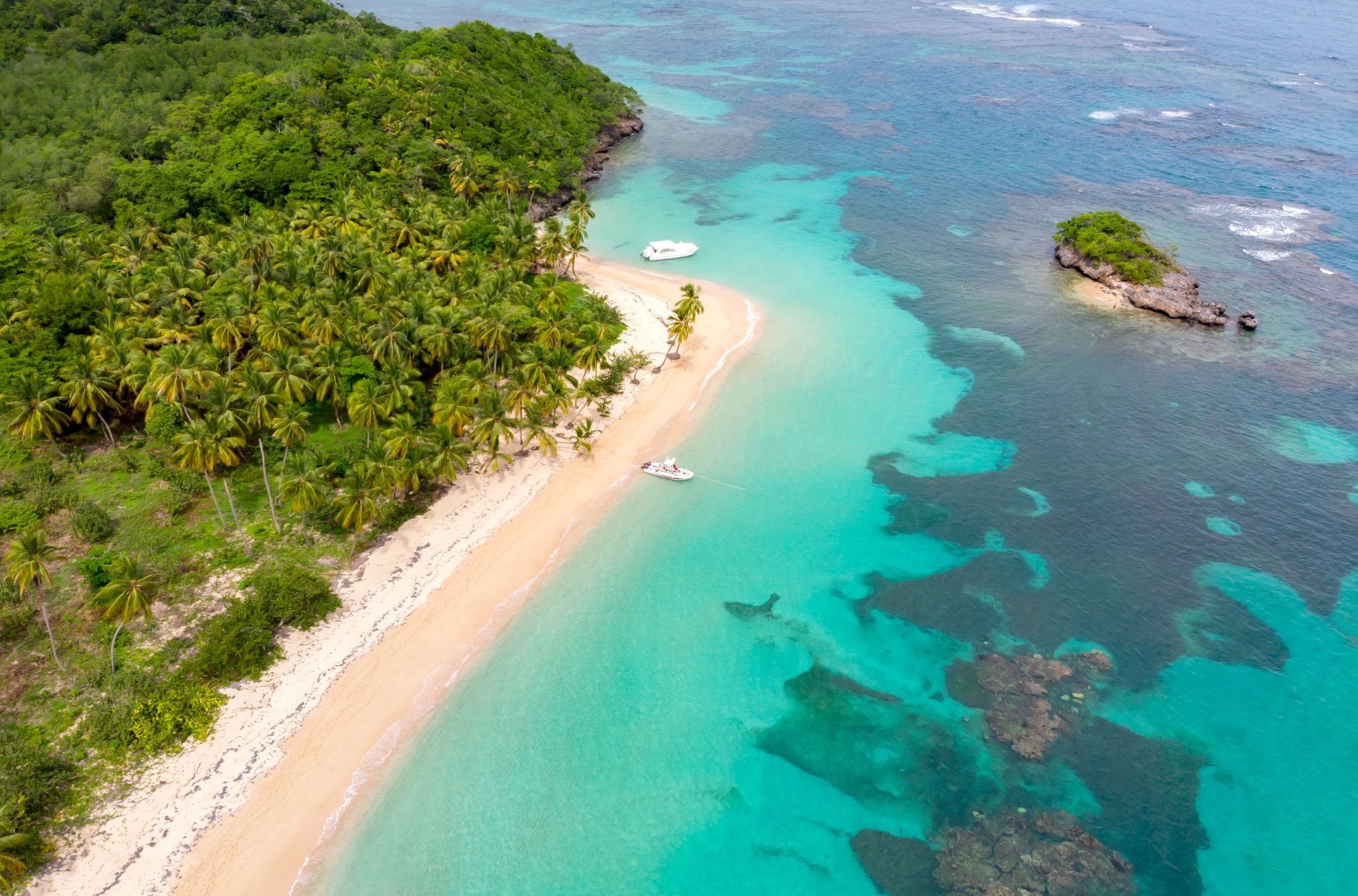
Saint Kitts and Nevis Passport Benefits
Visa-Free Travel Reach
The passport from Saint Kitts and Nevis allows entry to 158 countries and territories without a visa or with a visa upon arrival, placing it 24th in the Henley Passport Index for travel freedom.
The Electronic Travel Authorization (eTA) simplifies entry into Canada for those previously issued a Canadian visa or possessing a valid US non-immigrant visa. Additionally, as ‘Annex II’ nationals, holders can spend up to 90 days within any 180 days in the Schengen Area without a visa.
Being a Caribbean Community (CARICOM) member also provides the opportunity to live and work in other member states through the CSME Skills Certificate. The Eastern Caribbean Economic Union’s Protocol further extends this privilege to reside and seek employment in member countries such as Antigua and Barbuda, Grenada, Saint Lucia, and Saint Vincent and the Grenadines.
Visitors to the UK can stay for up to six months without a visa, subject to certain conditions. British embassies or consulates often offer consular assistance in regions where Saint Kitts and Nevis lacks a diplomatic presence.
Taxation Policies
The nation’s tax system is favorable for citizens, exempting them from personal income and inheritance taxes. Tax residents are also not subject to taxes on dividends and royalties.
Non-residents are taxed at 15% on income generated within the islands. Companies incorporated in Saint Kitts and Nevis face capital gains tax and a corporate tax of 33%. Still, those who are non-residents are taxed solely on their local earnings.
Property owners are subject to land and building taxes, calculated based on the property’s value.
Investment Options and Costs
The SISC route necessitates a contribution starting at $250,000 for an individual, with additional fees for adding family members.
Another avenue is purchasing property. A minimum investment of $400,000 in approved real estate is required, and the property can be sold after a seven-year holding period.
Processing Time and Due Diligence
The CIU is responsible for the application process, which includes a comprehensive vetting procedure to ensure that only individuals of good standing are approved, thus preserving the prestige of the Saint Kitts and Nevis passport.
The passport issued is valid for a decade, providing extended advantages. The CIU’s rigorous screening process includes a mandatory interview, contributing to the program’s high standing.
Dominica Passport Benefits
Visa-Free Travel Accessibility
The Dominica passport, ranked 35th by the Henley Passport Index, allows entry to 137 countries and territories without prior visa arrangements. This includes the Schengen Area, the United Kingdom, and Hong Kong.
This privilege has been expanded in recent years, with Russia permitting entry for up to 90 days since early 2019 and Ukraine following suit in mid-May of the same year. Uzbekistan joined the list in early 2020 with a 30-day visa-free agreement. As of late February 2021, the United Arab Emirates also allows Dominicans to enter visa-free, underscoring the growing international passport recognition.
Tax Benefits
Dominica offers a tax-friendly environment for non-resident citizens, exempting them from several taxes on non-local income. This includes foreign-earned income, capital gains, and the inheritance tax, making it an attractive jurisdiction for personal wealth management.
The island’s offshore banking sector is also gaining traction, providing opportunities for the establishment of IBCs.
Investment Routes and Pricing
Dominica’s CBI Programme is recognized for its affordability, with investment thresholds that have been consistent through at least 2021. The CBIU, a specialized agency within the Department of Finance, administers the program, offering two investment options: a contribution to the Economic Diversification Fund or purchasing approved real estate.
Application Processing and Vetting
The CBI Programme is characterized by its swift and reliable processing, averaging around three months. It includes thorough due diligence checks, with fees of $7,500 for the main applicant and $4,000 for a spouse or each dependent aged 16 and over. In some instances, additional due diligence may be necessary, incurring extra costs.
Dominica’s program is highly rated in the CBI Index, reflecting its commitment to transparency and integrity. The CBIU collaborates with other Caribbean CBI jurisdictions to maintain high due diligence standards. The director and senior examiners of the CBIU have the final say on applications, ensuring the confidentiality of new citizens. The country permits dual nationality without the obligation to renounce previous citizenships and does not disclose the identities of its new citizens.
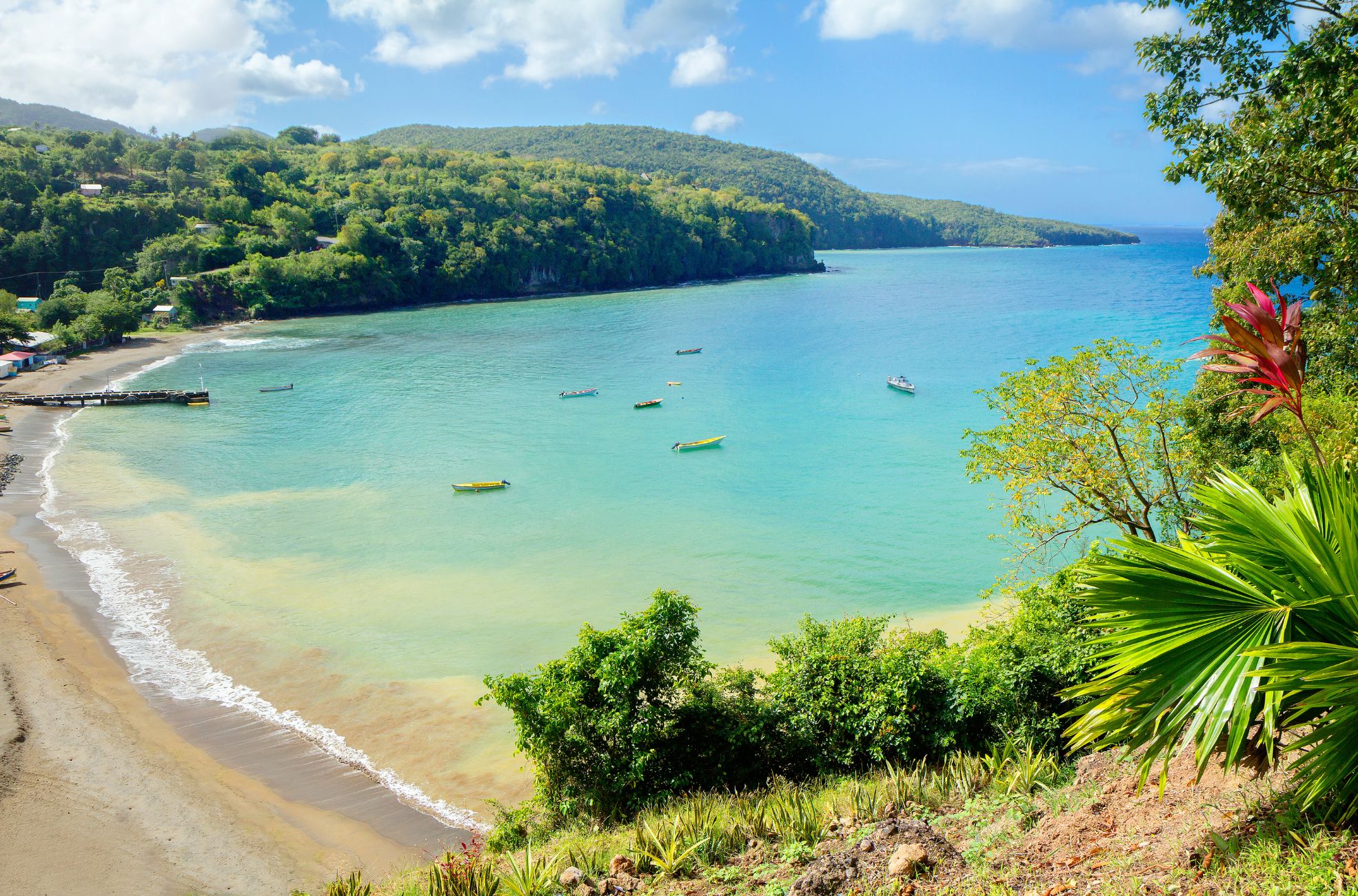
Comparing Passports: Saint Kitts and Nevis vs Dominica
Side-by-Side Comparison of Visa-Free Countries
While both passports afford significant travel opportunities, Dominica’s passport stands out for its visa-free access to China, which Saint Kitts and Nevis do not offer. This feature may be particularly appealing to those looking to engage with Chinese markets.
Investment Criteria Comparisons
The financial criteria for obtaining citizenship differ between the two nations. Dominica’s CBI program is noted for its cost-effectiveness, with a starting point of $100,000 for a single applicant. It has been acknowledged as the top CBI program for four consecutive years.
Time to Citizenship and Passport Issuance
Dominica’s CBI program boasts a slightly faster average processing time of three months compared to Saint Kitts and Nevis, which generally takes around four months. Both countries have optimized their processes to expedite the path to citizenship.
Reputation and Global Acceptance
Dominica has been bolstering the appeal of its passport with strategic diplomatic moves, such as the visa waiver with China, enhancing its attractiveness to international investors.
Both nations offer the ability to include immediate family members in the citizenship application, with recent policy adjustments in both territories regarding the inclusion of siblings and grandparents.
Regarding real estate investment, Saint Kitts and Nevis does not levy a tax on property purchases, with owners subject to a tax rate between 0.4 and 0.96%. Conversely, Dominica imposes a 10.5% rate on real estate transactions, with property tax rates varying from zero to 1.25%. The resale of government-sanctioned real estate is permitted after seven years in Saint Kitts and Nevis and after five years in Dominica.
The social contribution rates are 5% in Saint Kitts and Nevis and 6% in Dominica. These variances in taxation and investment opportunities may influence your decision when considering CBI programs.
Choosing the Right Passport for You
Assessing Personal and Business Mobility Needs
When deliberating on secondary citizenship, it’s crucial to consider your travel and business requirements. Enhanced safety, economic prospects, and quality of life of second citizenship are often sought after by affluent individuals, along with the ability to traverse international borders easily. The travel privileges associated with a passport from specific nations can facilitate business ventures and personal development.
For instance, the Saint Kitts and Nevis passport allows for substantial travel freedom. In contrast, the Dominican passport’s unique visa-free entry to China may be decisive for those engaging with Chinese commerce.
Financial Considerations and Long-term Benefits
The cost of investment for citizenship varies, with government fees and some programs offering more affordable options. Understanding the tax regime is also essential. For example, while Saint Kitts exempts personal income from taxation and does not impose a tax on property purchases, Dominica provides personal income tax relief. Still, it applies a transaction tax on real estate. These financial details and the potential for investment and reputational risks must be balanced against the enduring advantages of enhanced mobility and improved living standards.
Lifestyle and Family Considerations
Lifestyle preferences and familial obligations should be factored in when selecting a passport and wealth tax amount. Family investment requirements can differ, with Saint Kitts and Nevis offering a more favorable minimum donation for a family of four. The period after which you can divest your investment is also a consideration for long-term financial strategy.
Additionally, the need to reside in the host country for a certain number of days to retain residency may affect your lifestyle and the program’s suitability for your family. How new citizenship aligns with your family’s lifestyle, including educational, healthcare, and social aspects, is an important consideration.
Final Thoughts on Making a Decision
Deciding on the most suitable passport requires analyzing various elements, including the investment prerequisites and the citizenship process. It is important to be aware of the differences in rights between citizens and permanent residents and the potential for changes in residency status.
Professional guidance can assist in understanding the intricacies of these programs and ensuring all criteria are met, such as maintaining a clean criminal record. The ultimate choice will depend on a combination of personal situations, financial means, travel objectives, and preferences.
Making Your Passport Choice
Embarking on the journey to select a Caribbean passport through the Citizenship by Investment program requires careful consideration of your unique circumstances. Saint Kitts, Nevis, and Dominica present compelling opportunities with their respective CBI programs. The deciding factors often boil down to personal mobility goals, financial strategy, and long-term family planning.
Whether you value the expansive travel freedom offered by Saint Kitts and Nevis or the cost-effective investment program and strategic alliances provided by Dominica, each program is designed to elevate your global reach. With your aspirations in mind, delve into the nuances of each option and take a step towards enriching your life as a global citizen. The world awaits, and your new passport can be the key to unlocking its doors.


